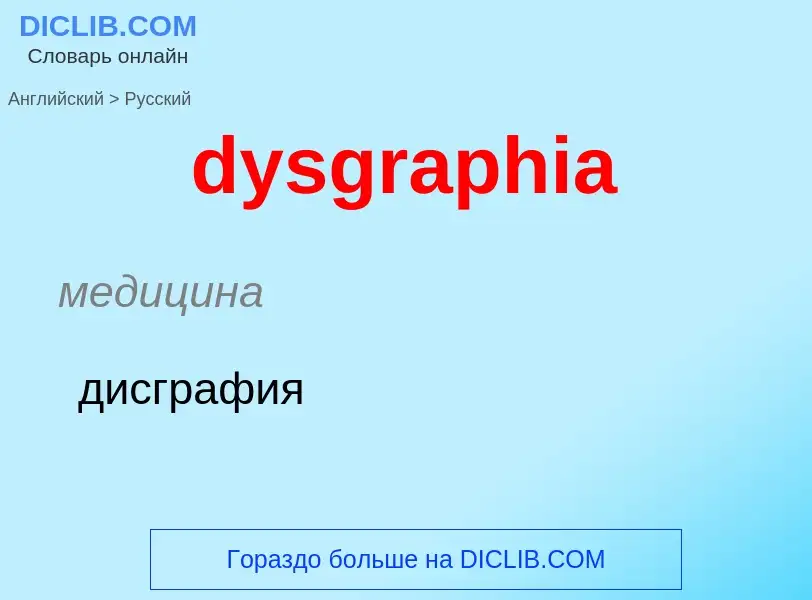Traducción y análisis de palabras por inteligencia artificial ChatGPT
En esta página puede obtener un análisis detallado de una palabra o frase, producido utilizando la mejor tecnología de inteligencia artificial hasta la fecha:
- cómo se usa la palabra
- frecuencia de uso
- se utiliza con más frecuencia en el habla oral o escrita
- opciones de traducción
- ejemplos de uso (varias frases con traducción)
- etimología
dysgraphia - traducción al ruso
медицина
дисграфия
Definición
Wikipedia
Dysgraphia is a learning disability of written expression, which affects the ability to write, primarily handwriting, but also coherence. It is a specific learning disability (SLD) as well as a transcription disability, meaning that it is a writing disorder associated with impaired handwriting, orthographic coding and finger sequencing (the movement of muscles required to write). It often overlaps with other learning disabilities and neurodevelopmental disorders such as speech impairment, attention deficit hyperactivity disorder (ADHD) or developmental coordination disorder (DCD).
In the Diagnostic and Statistical Manual of Mental Disorders (DSM-IV), dysgraphia is characterized as a learning disability in the category of written expression, when one's writing skills are below those expected given a person's age measured through intelligence and age-appropriate education. The DSM is unclear in whether writing refers only to the motor skills involved in writing, or if it also includes orthographic skills and spelling.
Dysgraphia should be distinguished from agraphia (sometimes called acquired dysgraphia), which is an acquired loss of the ability to write resulting from brain injury, progressive illness, or a stroke.
The prevalence of dysgraphia throughout the world is not known, due to difficulties in diagnosis and lack of research.


